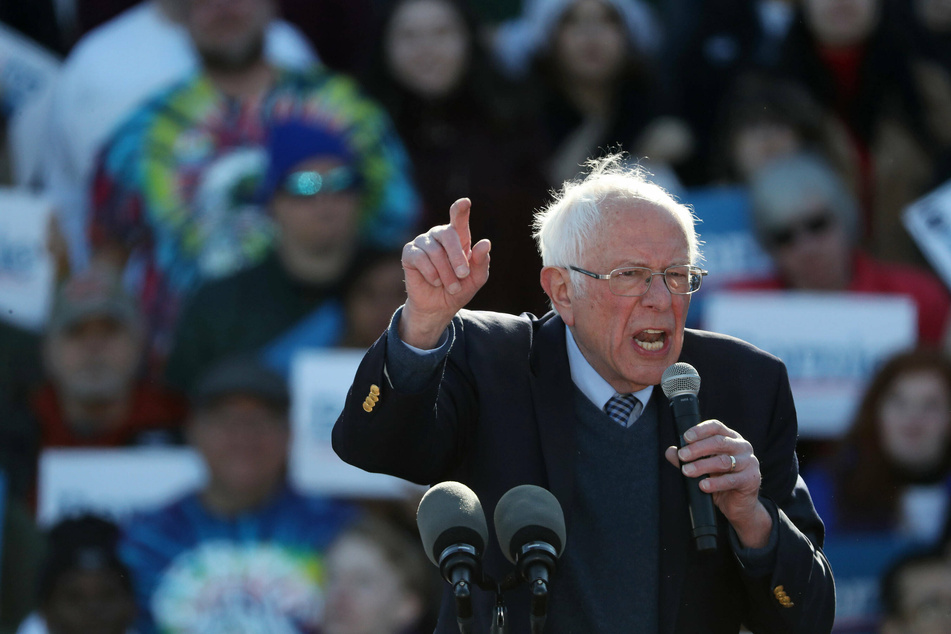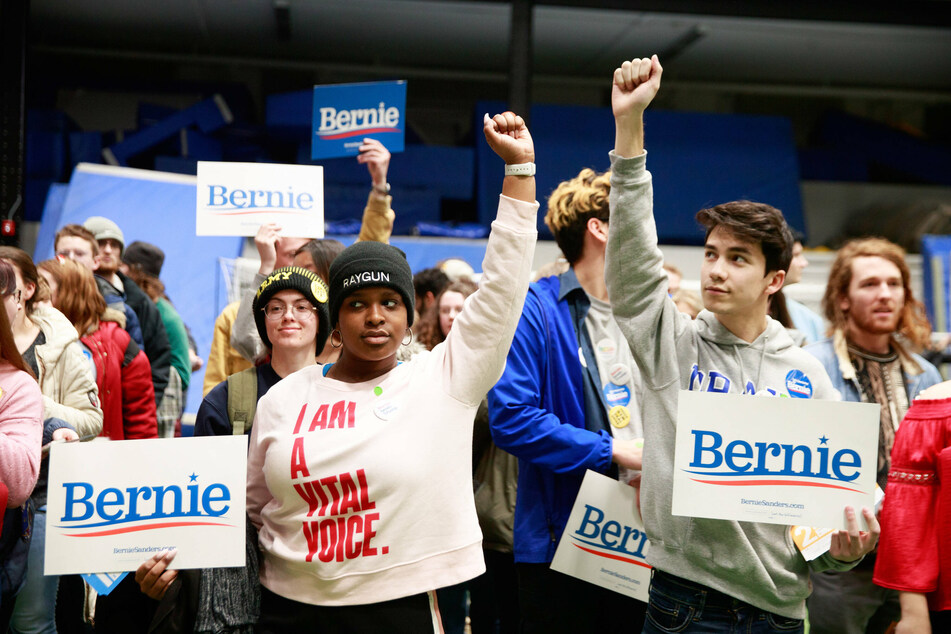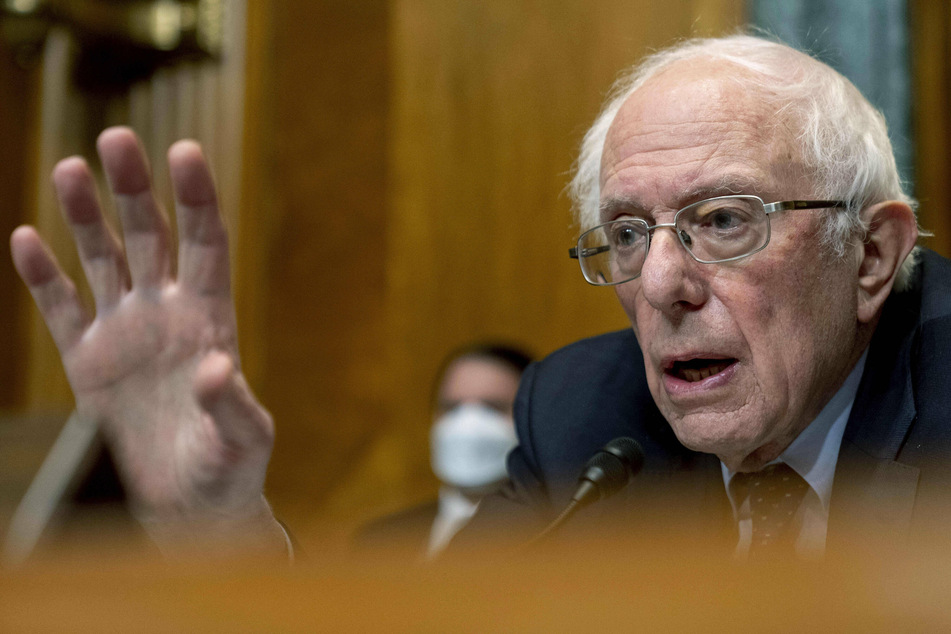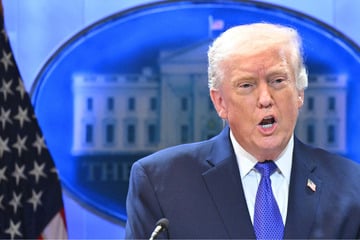Bernie Sanders tops off the weekend with Iowa town hall on $3.5-trillion budget proposal
Cedar Rapids, Iowa – Senator Bernie Sanders' budget tour continued to Iowa on Sunday for another town hall to engage with everyday Americans on the issues that matter most.

Bernie received a standing ovation as he took the stage at an outdoor town hall in Cedar Rapids on Sunday.
The feelings of good will were apparently mutual, with the Vermont senator saying, "The reason I love doing [town halls] is, I think that public officials in Washington, the corporate media in general does not do a good job in explaining what goes on in our nation's capital."
Sanders is seeking to bridge that gap with several town halls intended to let the public know what is in the $3.5-trillion budget proposal.
His weekend tour began on Friday, when Bernie gave a similar town hall in West Lafayette, Indiana. He continued his journey to Detroit on Saturday, where he met with Michiganders and several of their representatives, including Congresswoman Rashida Tlaib.
It's very rare for such a high-profile politician to go out of their way to engage with working communities on proposed legislation – especially when they aren't in campaign mode. For that reason, the significance of the Senate Budget Committee chair traveling to three different states to explain what the $3.5-trillion budget aims to do for everyday families can hardly be underestimated.
But Sanders didn't seem to think the idea was so wild. "It's a very radical concept. It's called democracy," he joked.
Bernie says US has made progress but still has room for improvement

The senator prefaced his Sunday talk by saying that we are living in "difficult times" marked by the coronavirus pandemic, the climate emergency, and the crisis in Afghanistan.
When confronted by so much bad news, he said It's "understandable" that many people may want to tune out.
But he also offered a note of hope in the face of these disasters: "I am here in Iowa to tell you that I am absolutely convinced that if we, as Americans, have the courage and the determination to stand together and stand up in the fight for justice [ ... ] we can not only address these awful problems, but we can move this country forward in a very different and positive direction."
He then began talking about all the progress the country has made so far under the Biden administration, saying that unemployment has been cut by half and wages have been rising over the last year.
He also emphasized that childhood poverty has decreased by 50% due to direct $300 per child per month payments extended to working families under the American Rescue Plan.
But despite these advances, the senator says there is still a long way to go toward making "an economy that works for all of us and not just the 1%."
For Sanders, some of the solutions to ongoing injustices will come in the form of two infrastructure bills currently making their way through Congress.
Together, both pieces of the legislation will "create millions of good-paying jobs" and the conditions for working and middle-class Americans, not just the ultra-rich, to live in dignity, the senator said.
Bernie details provisions of $3.5-trillion budget

The first bill Bernie mentioned in his address was the bipartisan infrastructure package, which proposes a $550-billion investment in rebuilding roads, bridges, water systems, and waste water plants. The legislation also calls for expanding broadband internet access and public transit.
But the heart of his speech concerned the $3.5-trillion budget proposal. Though the budget resolution has passed in the Senate and the House, the actual bill, including line-item spending, is still in the works.
Nevertheless, Bernie went into detail on many of the proposed uses for the funds, including lowering the cost of prescription drugs; expanding Medicare to cover dental, hearing, and vision; enabling home health care for the elderly; granting up to three weeks of paid family and medical leave; continuing direct payments for working families; providing two years of free community college; building affordable childcare facilities; investing in affordable housing; and more.
Bernie also added that the larger bill will take direct action to tackle the climate emergency: "What this legislation says is that now is the time for the United States of America to lead the world in the existential struggle against climate change."
He said one aspect he was particularly excited about was the creation of a Civilian Climate Corps, which would provide educational benefits and good wages to thousands of young Americans who want to pursue a career in helping address the climate emergency.
But the proposed investments aren't without opposition: "Right now you have every special interest and their lobbyists flooding Capitol Hill trying to defeat this legislation," Bernie said, calling out drug companies, the healthcare industry, the fossil fuel industry, and the ultra-rich.
Still, he seemed fully confident he would get the 50 votes he needs to pass the legislation in the Senate.
"What this legislation is about to me personally is not just improving life for millions and millions of working people. It is making people understand that government can, in fact, in a democratic society work for working families and not just the wealthy and the powerful," he concluded.
Cover photo: IMAGO / ZUMA Wire

